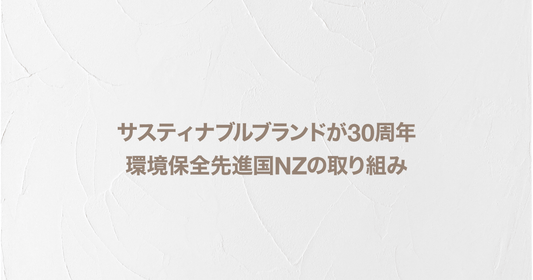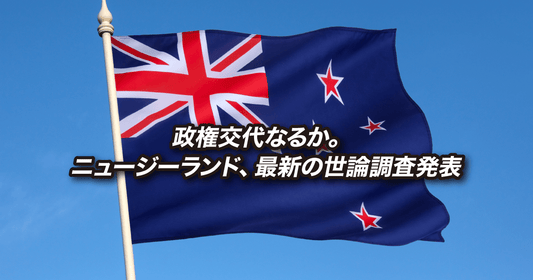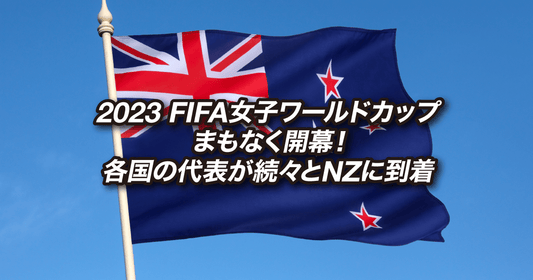
New Zealand had zero community infections of the new coronavirus for over 100 days since the first case was discovered on February 26th of this year, when the virus was brought to the country. However, on August 11th, four cases of community infection were discovered in Auckland, the country's largest city. By August 15th, 37 community infections had been confirmed.
Including the 19 cases among those in quarantine upon entry, there are now 56 positive cases in New Zealand.
Even during the period when there were zero community infections, there were always around 20 positive cases among people returning from overseas at the border, and there was vigilance that community infection could occur at any time. However, unfortunately, life had returned to a fairly normal state, with no masks, no social distancing, and infections occurring at rugby games attended by tens of thousands of people.
The route of infection is unknown
The first cases were reported in a family of four living in South Auckland, but it is unclear exactly where they contracted the virus.
One of the family members worked in a warehouse that handled imported frozen foods, so it is believed that the virus was transmitted from there, but experts say that if the virus was transmitted from the surface of the goods, it would be a very rare case. The warehouse was subsequently investigated, and no virus contamination was found, but investigations into the presence of the virus in imported cargo brought into New Zealand are ongoing.
In addition, anyone entering New Zealand is required to quarantine for 14 days immediately after entering the country, and there have been positive cases among those in quarantine, but these cases have not confirmed community infection.
The government is urging people to refrain from getting tested unless they have symptoms, have had contact with a confirmed case, or work at a border facility such as an airport. Nevertheless, 28,000 tests were conducted on August 14, bringing the total to 49,700 since August 11, when community infection was discovered. Many people are gathering to get tested, and there are lines of cars at each drive-through testing center.
We are seeing high demands at our community testing facilities. We kindly ask that if you are not showing COVID-19 symptoms, if you are not a close contact of any positive cases & if you do not work at the border or MIQ facilities, please do not come to the CBACS (community based pic.twitter.com/EcPLmkw6H2
— Unite against COVID-19 (@covid19nz) August 14, 2020
Auckland goes into lockdown immediately
From noon the day after four community cases were discovered, Auckland's COVID-19 alert level was raised to Level 3 lockdown, and the rest of the country was raised to Level 2. This was scheduled for three days, but due to the spread of community infections, a 12-day extension of the lockdown was announced on August 14th (until August 26th).
At this alert level 3, all businesses except for essential businesses such as supermarkets, pharmacies, and gas stations are closed. Restaurants are only allowed to serve takeout. Schools are also closed. Gatherings of more than 10 people are also prohibited, and people are asked to reduce the number of people they normally come into contact with (basically only those who live together).
About a month after the infection began to spread, New Zealand established a four-level COVID-19 alert system, which led to a rapid response of raising Auckland, a city of 1.7 million people, to level 3 when only four cases were discovered.
However, just like in any other country, there are people who cannot follow the rules. The first Saturday of the weekend under Level 3 was a warm, sunny day that felt like spring, and many people went to parks and beaches.
Possibility of postponement of general election
New Zealand is scheduled to hold a general election in September this year, but discussions are underway on whether to postpone it. The dissolution of Parliament has been postponed until August 17, and the election results are scheduled to be announced on the 17th. In New Zealand, the Prime Minister has the authority to decide the date of the general election as long as it is before the dissolution of Parliament.
Judith Collins, leader of the opposition National Party, has already urged Prime Minister Jacinda Ardern to postpone the election, stating that it should be postponed until November at the earliest, with the possibility of changing it to next year. Collins only recently became leader. The National Party has recently undergone a number of leader changes, so postponing the election may be advantageous for the party to solidify its base.
By the way, Collins is also a woman. Regardless of the outcome of the election, New Zealand will once again have a female prime minister, which is a great thing for Japanese people to see, but since Ardern is already the third female prime minister, the gender of the prime minister is not even discussed in New Zealand!
New Zealand is rushing to identify the route of infection, and hopes are high that the second wave will be contained as soon as possible.





